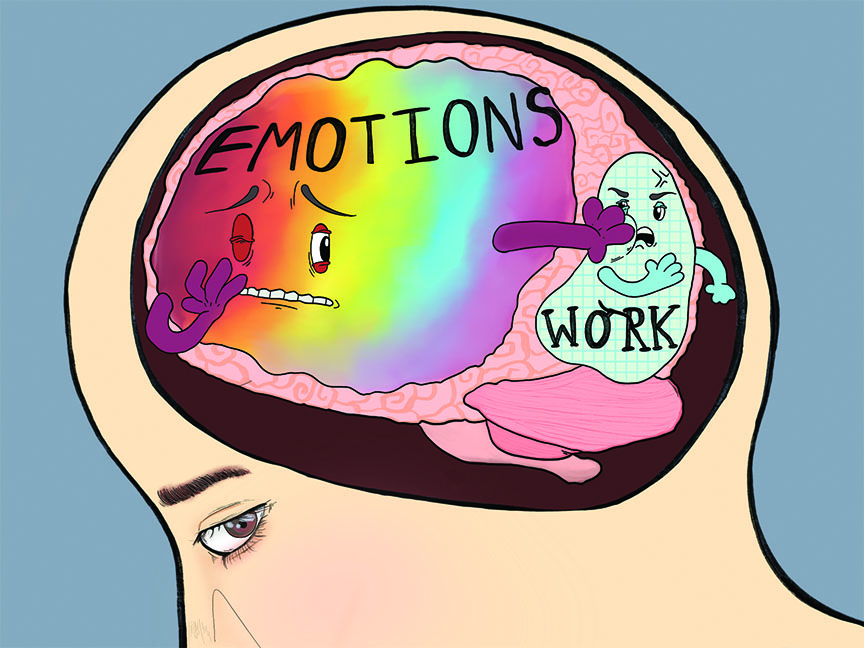Getting worked up over procrastination
At the beginning of first semester, senior Simona Bernfeld could not bring herself to complete an essay for her Honors Humanities class. After a week and a half of feeling guilty, stressed and angry at herself for putting the assignment off, Bernfeld knew she had to change her habit of procrastination.
“It was the very first assignment and there was so much time to do it, and then when it wasn’t done, all of those negative emotions … exploded into a mess,” Bernfeld said in a video conference.
Dr. Tim Pychyl, associate professor of psychology at Carleton University in Ottawa, Canada, said in a video conference that procrastination is an “emotion-focused coping mechanism.
“When we face a task that prompts us to have negative emotions, … we’ve learned we can escape those emotions if we escape the task,” said Pychyl. “So we use avoidance to cope.”
Psychotherapist Dr. Julia Baum said in a video conference that an expectation to produce perfect work could be a source of these negative emotions.
“There’s no guarantee [of perfection] in life, so the fact that we don’t have a guarantee and we’re insisting on [perfection] causes us to feel anxious,” said Baum. “Once we’re anxious, we put things off.”
According to Pychyl, procrastination itself could also cause negative emotions like guilt for not completing the task.
According to Bernfeld, when she procrastinates, it weighs on her mind because she keeps thinking about how she is putting off work.
“[I feel] angry at myself that I’m not opening the computer and forgetting things [about my assignment], and it’s like a whole mishmash of negative feelings that are just all laid out when the assignment has to be completed,” Bernfeld said.
According to Pychyl, practicing self-forgiveness can help resolve the cycle of negative feelings. In a 2010 study on procrastination and self-forgiveness, students who were more willing to forgive themselves for procrastinating on studying for an exam were observed to procrastinate less for their next exam. Those who were not as willing to forgive themselves procrastinated again.
Self-forgiveness starts with the understanding that it is human to make mistakes, which eases the guilt about procrastinating and allows people to move on, Pychyl said. Another way to manage procrastination is to adopt a non-judgmental awareness of one’s emotions rather than suppressing them with thoughts like, “I should not feel angry” or “I should want to do my work.”
William McCown, professor of psychology at the University of Louisiana at Monroe, said in a video conference that setting rational rewards can also help manage procrastination because procrastinators tend to fluctuate between excessive rewards and punishment, negatively impacting self-esteem.
“[Procrastinators should] appreciate that they are independent of their academic and other skills.
“Once [they] do that, … they’re able to get a more reasonable idea of what they can and can’t do and their failures don’t trigger an overcompensation,” McCown said.
According to Bernfeld, she has learned not to bottle up her emotions when it comes to procrastination.
“I remember when I got my calculus final, and it was not a good feeling,” said Bernfeld. “And I was like, ‘Well, I could have done better.’ But I think at this point, if this was me freshman, sophomore and junior year, I would have probably cried for a week.
“I’ve chilled down a lot about that. On one hand, it’s not good that I don’t hold myself to as high [of] an expectation. But on the other, it’s not that crucial to me to have an A in calculus. I’ve set my priorities.”


